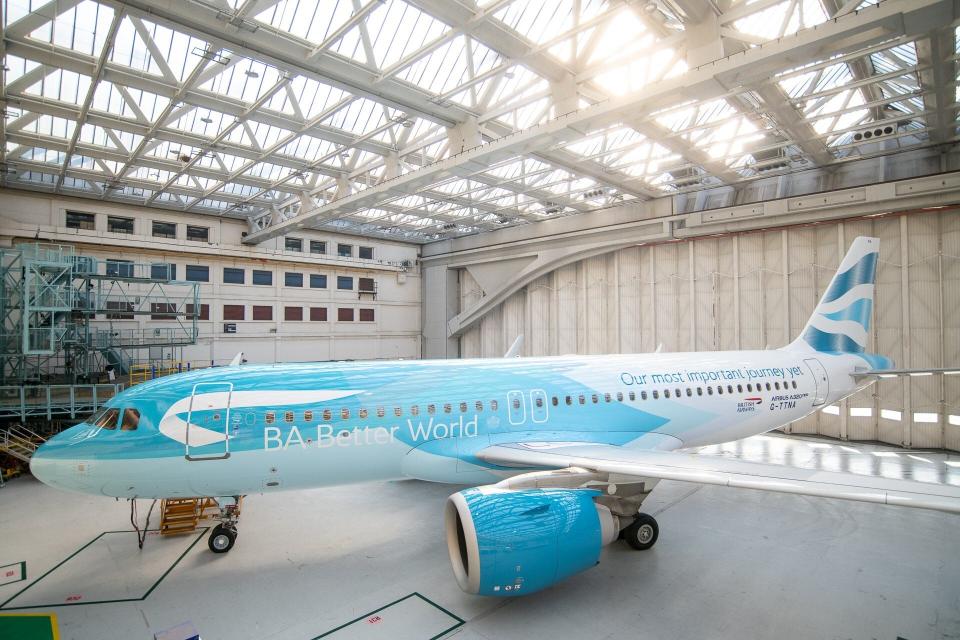British Airways flew a 'perfect flight' using recycled cooking oil

British Airways just flew what's it's calling a "perfect flight" using recycled cooking oil.
The airline said Tuesday's Flight BA1476 was its first passenger flight "directly powered by sustainable aviation fuel, provided by bp, blended at 35% with traditional jet fuel in accordance with technical aviation specifications." That sustainable aviation fuel was made with the recycled oil.
British Airways called the flight "carbon-neutral," noting that remaining emissions were offset.
"This flight offered a practical demonstration of the progress we're making in our carbon reduction journey," British Airways Chairman and CEO Sean Doyle said in a statement. "By working together with our industry partners we've delivered a 62% improvement in emissions reductions compared to a decade ago." A similar flight to Edinburgh in 2010 served as a benchmark for comparison.
Sustainable aviation fuel wasn't the only thing that helped reduce the flight's carbon footprint.
►Forget about toasts at 35,000 feet: Southwest Airlines isn't bringing back inflight booze until at least 2022
►Travel's new normal: Just as 9/11 changed travel forever, so has COVID.

What else makes the 'perfect flight'
British Airways used an Airbus A320neo, which it calls "the quietest and most fuel-efficient short-haul aircraft" in its fleet.
British air traffic control provider NATS directed the plane in continuous climb and descent to avoid unnecessary fuel burn, leveling off.
An electric Mototok vehicle, powered by Heathrow's bank of renewable energy, was used to push the plane back.
Only one engine was used to taxi along the runway for takeoff. The second engine was also turned off after landing.
Aircraft computer systems determined the perfect flying altitude for fuel efficiency, given the plane's weight and wind data, and climb speeds were optimized in advance.
While this flight was considered a success, British Airways customers shouldn't expect this on other flights anytime soon. The airline is aiming to achieve net-zero carbon emissions across the board by 2050.
This article originally appeared on USA TODAY: British Airways makes history flying on recycled cooking oil

